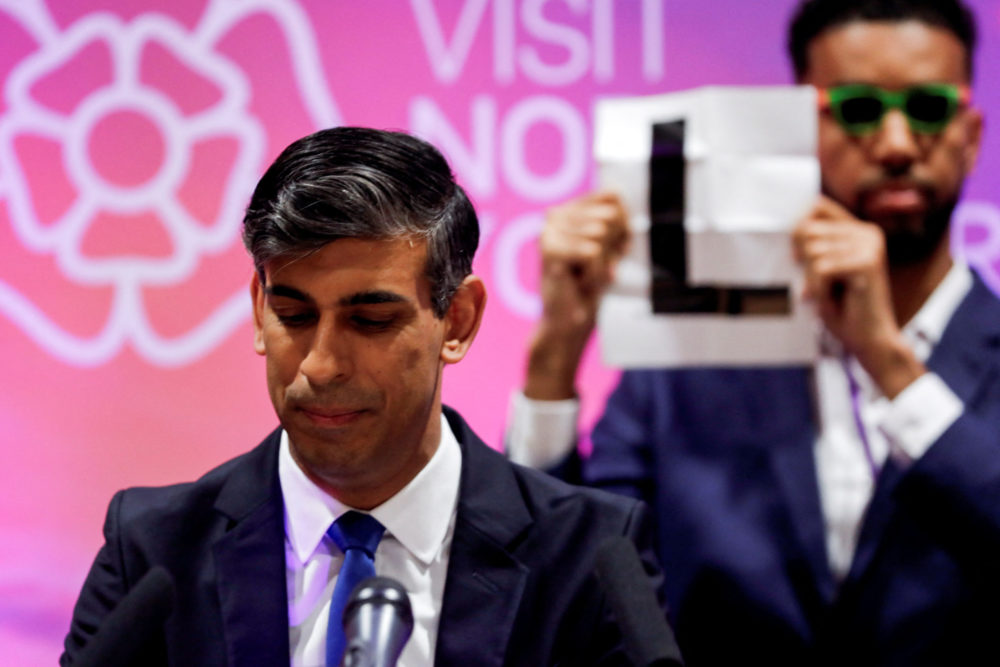‘General election 2024 the most disproportional on record’

This general election is the most disproportional on record in terms of votes cast matching seats in Parliament, analysis from the Electoral Reform Society has found.
Yesterday’s election result is the most disproportional in British electoral history according to two separate DV (deviation from proportionality) scores, which are used to measure how proportional elections are in terms of seats in parliament matching the percentage of votes each party receives.
With a DV score of 30, the 2024 election was found to have beaten the previously most disproportional election, which was 2015 with a score of 24, according to the Loosemore-Hanby measure*.
The third most disproportional result according to this measure is 1983, which had a DV score of 23.
Thursday’s general election was also found to be the most disproportional on the Gallagher method* of DV score, with a score of 24. The second most disproportional election on this measure is 1983 with a score of 20.6.
The results today saw the Labour Party win 64% of seats (412) with just under 34% of the votes. Meanwhile, Reform UK and the Green Party won just 8 seats (just over 1%) between them with over 20% of the vote share combined [4].
Research
Research by the Electoral Reform Society also showed that Labour won an MP for every 24,000 votes they received, compared to one for every 49,000 for the Lib Dems, one MP for every 56,000 votes for the Conservatives, one for every 485,000 votes for the Greens and one for every 1,000,000 for Reform.
Yesterday’s vote also saw a number of electoral firsts which contributed to how disproportional the result was. For instance, this was the first election where four parties received over 10% of the vote and the first where five parties received over 5%.
It was also the election where Labour and the Conservatives received their joint lowest vote share on record, with a combined 57.4%. The second lowest combined vote share for the two parties was in 2010 when they received 65.1%.
However, this election is not an outlier result. Other recent general elections have produced disproportional results. The last three general elections have seen a winning majority gained on just 36.9% of the vote in 2015, a minority government on 42.4% of the vote in 2017 and an 80-seat majority achieved on a vote share increase of just 1.3 percent in 2019.

Yesterday’s unprecedented disproportional result comes as there is growing – and now majority – support for electoral reform in the country.
Meanwhile, the National Centre for Social Research found trust in politics has recently sunk to record lows, a problem the ERS has long argued is exacerbated by people not feeling their votes count under the First Past the Post voting system
ERS research found that at the last general election in 2019 over 22 million votes (70.8%) didn’t count towards the result, in that they were either cast for a losing candidate or surplus votes for the winner.
Vote share
Darren Hughes, Chief Executive of the Electoral Reform Society said: “We have just witnessed the most disproportional election on record in terms of the votes people cast translating into seats in Parliament. It is clear that the British public is already voting as if we have a proportional system. For instance, this was the first election ever where four parties got over 10% of the vote share.
“The two-party voting system no longer reflects the way the country is voting. This is why the First Past the Post voting system used for Westminster is becoming more unstable and producing volatile results, and why millions of people’s votes effectively didn’t count towards securing any representation in Parliament yesterday.
“This disproportionality is now a feature rather than a bug of the current voting system. We now need to move to a proportional voting system for Westminster to ensure that Parliament accurately represents how the country voted, and that everyone’s vote counts towards the result no matter where they live.”
*ERS traditionally uses the Loosemore-Hanby (L-H) index. This index looks at the deviation between each party’s vote share and its seat share. If a party obtains 25% of the votes and 20% of the seats, the deviation is 5. The index adds up the absolute values of these deviations across all parties running in the election and divides the total by two. The higher the number the greater disproportionality.
*Another measure of disproportionality is the Gallagher index. The Gallagher index (least squares index) produces a figure typically between 0 and 30 where the higher the number the greater the disproportionality. The 2024 general election is 24 on Gallagher with 648 results declared. This measure finds that 1983 was the last most disproportional result with a score of 20.6.
Support our Nation today
For the price of a cup of coffee a month you can help us create an independent, not-for-profit, national news service for the people of Wales, by the people of Wales.







Lib dems have less votes than Reform but get 64 seats and Reform get just 4
the voters are not being represented.
Bet the Cons come out fighting for PR now.
Next Senedd elections gonna be interesting. Will reform oust Plaid and Tory as the larger opposition. Will they supplant Labour.
It will give ARTD somewhere to defect to.
Farage (and other reform MP’s) declaration of interests should be interesting. I hope investigative journos are all over those declarations.
The first past the post system is clearly not working and needs to be changed. Its completely undemocratic
Unfortunately the referendum in 2011 rejected the idea of changing the voting system. How are Reform going to get round that without opening the door to another Brexit referendum?